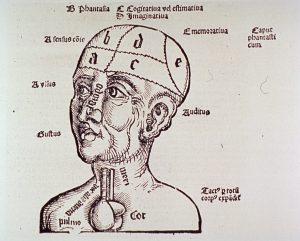Brains and Bread
If you were God and wanted a way for people to remember the most important event in human history, what program would you use? More than a watershed event, this is the Son of Your love, Your eternal glory, who enfleshed obedience and sacrifice to purchase a people for life. How will you move the redeemed to remember and rejoice? We might be tempted to focus on the mental aspect. After all, memory is the brain’s territory. Once the truth is in there, we need a trigger to recall it. We could also support it with specifics to remind us about the scope of this truth—say, that God planned it before the foundation of the world, and the comparative value of the truth—the resurrection of God-incarnate means more than any other resurrection. We can do quite a lot on the inside of our heads and all on our own.
We might be tempted to focus on the mental aspect. After all, memory is the brain’s territory. Once the truth is in there, we need a trigger to recall it. We could also support it with specifics to remind us about the scope of this truth—say, that God planned it before the foundation of the world, and the comparative value of the truth—the resurrection of God-incarnate means more than any other resurrection. We can do quite a lot on the inside of our heads and all on our own.
This is what maybe most Christians make of communion in the individualist West. We are separated from one another, separated from connection with place and time. We are even tempted to be separated from our tongues. If we could just visualize communion, wouldn’t that be easier? Wouldn’t that make it less likely to get messed up by forgotten salt in the bread or by bitter wine from the bottom of the bottle or by a slow family at the start of the procession to the table? Isn’t communion about remembering Jesus?
It is, and Jesus instituted a meal for us. Words explain it; we don’t disengage our reason. But words explain it, that is the table and the bread and the cup of wine and the plural number of particular persons with faces and names. The symbols are not empty or superfluous. The eating and drinking together are not wasted physical motions. God cares about who He’s saved and that includes what He’s made them to be. Your body may be broken for now, but He has promised you a healed one for eternity, purchased by the giving of Jesus’ body for you.